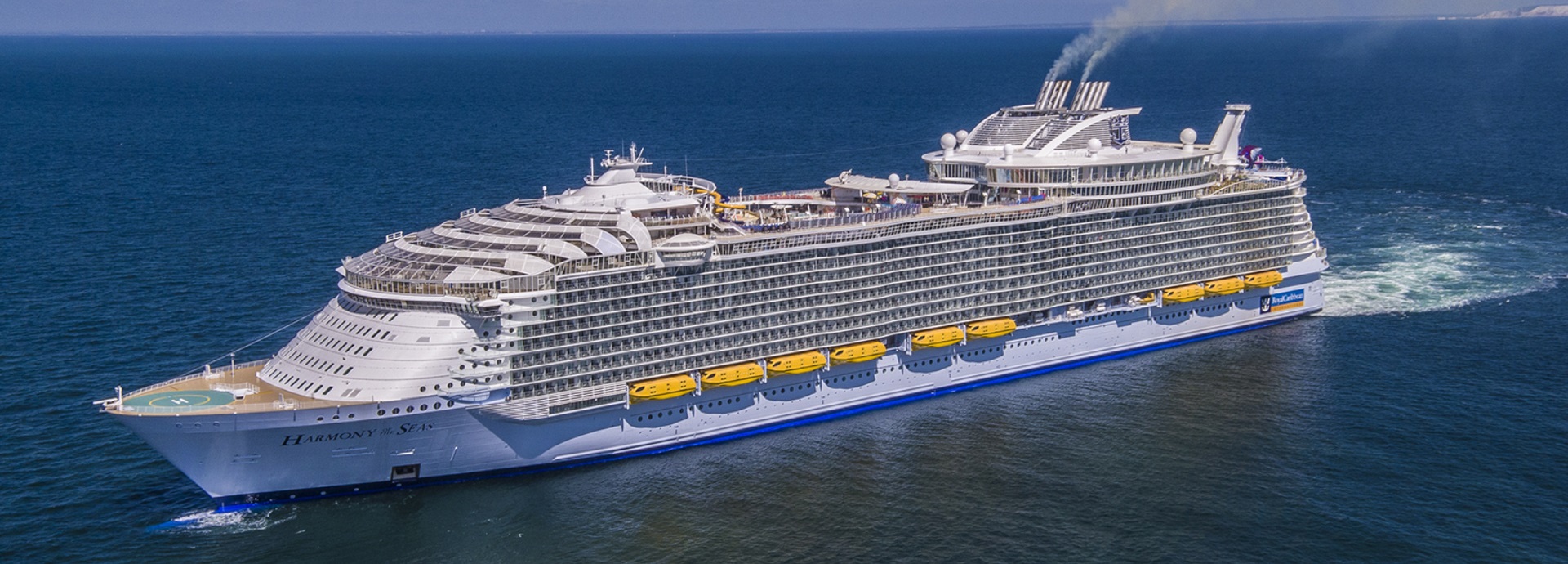

Tailored hybrid scrubber training packages for cruise giant
After Royal Caribbean Cruises (RCCL) implemented a series of scrubber training packages for the world’s largest cruise vessel, ‘Harmony of the Seas’, the ship’s crew are now well trained in how to operate and maintain Wärtsilä’s hybrid scrubber system.
Challenge
- Introducing a new exhaust gas cleaning technique
- Finding a suitable time for the crew trainings
Solution
- Delivering tailored hybrid scrubber operation training sessions
Benefit
- Comprehensive scrubber training to ensure improved awareness of the system
- A very smooth start-up after delivery
- Reliable operation and ability to operate and maintain the system
- Training delivered according to a requested schedule
Royal Caribbean Cruises Ltd. is one of the biggest global cruise vacation companies in the world. RCCL operates Royal Caribbean International, Celebrity Cruises, Pullmantur, Azamara Club Cruises and CDF Croisieres de France. The company has a combined total of well over 40 ships in service, comprising more than 200 engines. RCCL also offers unique land tour vacations in Alaska, Asia, Australia, New Zealand, Canada, Europe, and South America.
Both open and closed loop systems
The use of a scrubber technique for exhaust gas cleaning is quite new in the shipping industry. As such, it is vital that crew members receive the proper training.
As our ships must stay operational 24/7, it is extremely important that
the crews can master the scrubber system, as it is a vital part of the entire power production, says Kari Pihlajaniemi.
RCCL ordered training packages for the entire HM class new builds. The scope of the hybrid scrubber operation training
covered all aspects, from the basic design and theory of the system to the operation, maintenance and troubleshooting. The newly built Harmony of the Seas and Celebrity Silhouette were the first two sets of training completed with the same team; for
Harmony, the training was made in Saint Nazaire, France and for Silhouette in Copenhagen, Denmark.
Wärtsilä’s hybrid scrubber solutions are flexible and can operate in both open and closed-loop systems, using seawater to
remove SOX from the exhaust. The two scrubber systems in the Harmony of the Seas are the world’s biggest marine exhaust scrubber installations so far. They represent the state-of-the-art in exhaust cleaning technology and will allow the vessel
to comply with emission control regulations anywhere in the world.
Professional training sessions
WLSA’s comprehensive scrubber training package improves the crew’s knowledge level of the hybrid scrubber and helps them to utilise the new emission abatement technique more efficiently in their daily work. The training sessions as such went
very smoothly and the only challenge was to find a time that was suitable for the vessels’ schedules.
Wärtsilä tailored the training packages very much according to our needs. The two sessions were slightly different
from each other and were adjusted according to each case. Silhouette was staying only one night in Copenhagen, so we had to utilise this very tight period for training, whereas for Harmony the training was scheduled based on our requirements and the
availability of the crew. The entire training team was extremely professional. I have never seen such professional trainers in my whole career, says Mr. Pihlajaniemi.
According to Mr. Pihlajaniemi, the crew received comprehensive scrubber
training according to a schedule that was suitable for RCCL. He mentions the high attendance rates as some very positive feedback from the training sessions. Furthermore, he mentions that the set training goals were achieved. We will continue with
the same concept on our next new builds, he adds.
Impressive post-training support
The customer has been very satisfied with the high competence levels of the instructors as well as WLSA’s flexibility in terms of arranging the courses despite a tight schedule. The scrubber training courses and related training material have
been developed to support scrubber product development.
The post-training support has been great. Firstly, we received well prepared training material. Secondly, there was an extensive post-delivery program, consisting of regular visits
on board the ship for testing and calibration purposes before she sailed back to Caribbean waters.
A very smooth start-up after delivery, reliable operation, and improved awareness of the entire system are among the benefits Mr. Pihlajaniemi
presents.
The most important thing is that after the training we have been able to operate the system by ourselves.
Mr. Pihlajaniemi says that this training also fully supports RCCL’s business and goals. Awareness of how
essential systems behave, the theory, maintenance, and other topics are part of a reliable long-term operation.
Properly scheduled training is the way to ensure this process. I would recommend this type of training session for other customers
with similar needs. It was one of the best courses I have ever seen. This kind of advanced training should be standard for each system delivery, concludes Kari Pihlajaniemi.
I would recommend this type of training session for other customers with similar needs. It was one of the best courses I have ever seen. This kind of advanced training should be standard for each system delivery.




